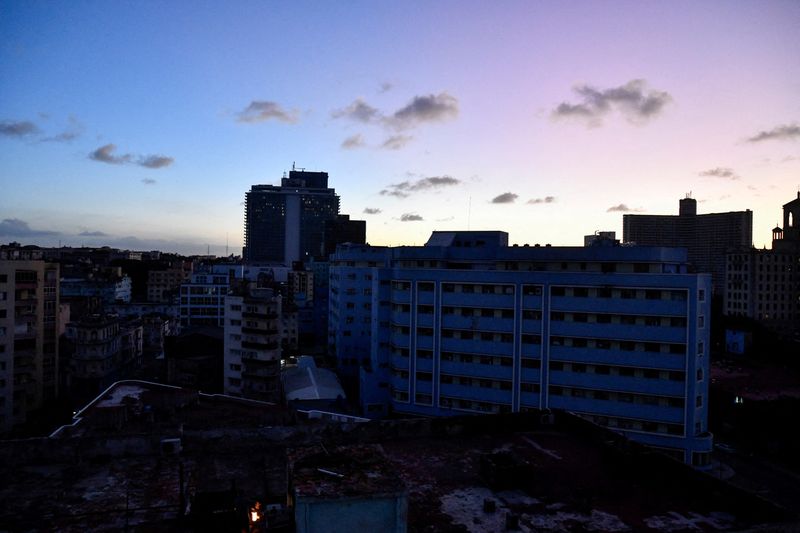By Nelson Acosta
HAVANA (Reuters) – Cuba this week asked state and private companies to generate more of their own electricity from renewable sources and limit their use of air conditioning, among other austerity measures, as the communist-led government faces its worst energy crisis endured in decades.
The new regulations, summarized in a 16-page decree published on Tuesday, give the largest energy consumers in both the public and private sectors three years to install renewable energy sources capable of supplying at least 50% of electricity produce that they consume during the day.
If an office building or factory cannot accommodate solar panels, companies will instead have to contract with the government for a portion of the installed renewable energy capacity.
The decree also establishes a series of new conservation measures, including a rule banning state and private companies on the Caribbean island from “using climate control units in non-technological offices at temperatures below 24 degrees Celsius.”
The increasingly restrictive measures come at a time when Cuba’s power grid is on the brink of collapse.
Multiple power outages across the island in October and November left millions of people in the dark for days. Power outages continue nationwide as Cuba struggles to obtain the fuel and spare parts it needs to generate enough electricity to meet demand.
The administration blames U.S. sanctions and a festering economic crisis for the increasingly tense situation.
The decree also establishes protocols for an emergency plan in emergency situations where it is “necessary to affect the electricity supply in a planned and sustainable manner for more than 72 hours.”

In such cases, companies should disconnect refrigerators, industrial ovens and irrigation pumps during peak hours.
The decree devotes several pages to describing enforcement of the new rules, which include cutting off electricity for businesses that do not meet the new standards, as well as fines of up to 15,000 pesos ($45.00) or more, depending on the violation.


